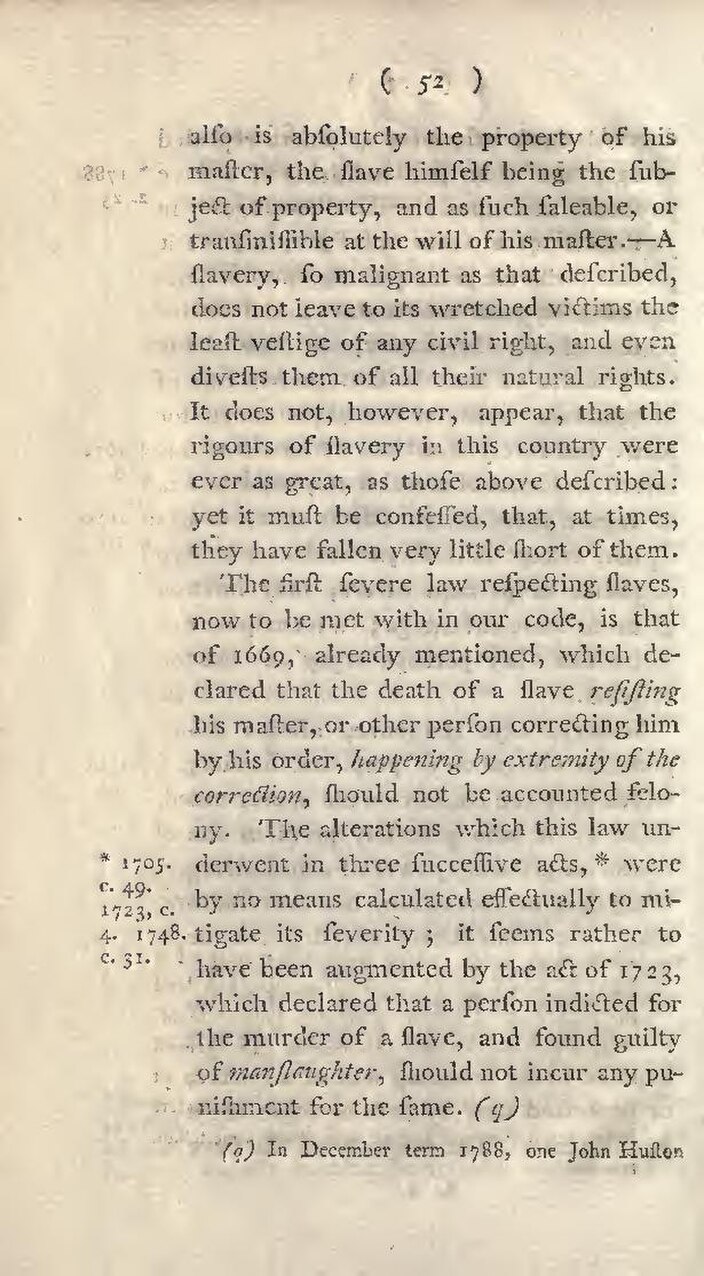( 52 )
also is absolutely the property of his master, the slave himself being the subject of property, and as such saleable, or transmissible at the will of his master.—A slavery, so malignant as that described, does not leave to its wretched victims the least vestige of any civil right, and even divests them of all their natural rights. It does not, however, appear, that the rigours of slavery in this country were ever as great, as those above described: yet it must be confessed, that, at times, they have fallen very little short of them.
The first severe law respecting slaves, now to be met with in our code, is that of 1669, already mentioned, which declared that the death of a slave resisting his master, or other person correcting him by his order, happening by extremity of the correction, should not be accounted felony. The alterations which this law underwent in three successive acts,** 1705. c. 49. 1723, c. 4. 1748. c. 31. were by no means calculated effectually to mitigate its severity; it seems rather to have been augmented by the act of 1723, which declared that a person indicted for the murder of a slave, and found guilty of manslaughter, should not incur any punishment for the same.[1]
- ↑ In December term 1788, one John Huston
